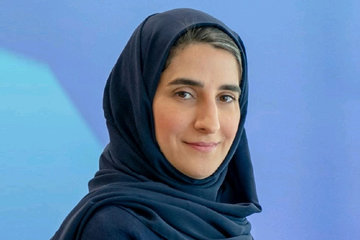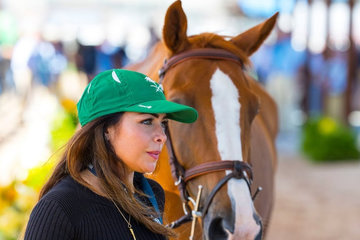
Sundus Abdulhadi is an Iraqi-Canadian artist and writer best known for her works that focus on war, trauma, and self-care across the Middle East. She is also the author of her semi-autobiography “Sham,” and “Take Care of Your Self: The Art and Cultures of Care and Liberation,” and host of "Al Ruwad: The Groundbreakers," a radio show about art and culture on Montreal's CKUT 90.3FM.
Abdulhadi was born in the United Arab Emirates (UAE) and moved to Canada with her parents at the age of 11. Throughout her childhood, her family were influential in her decision of becoming an artist. In fact, her mother was an artist, her father was an architect, and her sister was a photographer. As a child, Abdulhadi had vivid memories of her mother complementing their home with homemade arts and crafts.
In 2002, Abdulhadi enrolled in Concordia University where she would graduate with a BFA in Studio Art and Art History. As a student though, she realized that it was taboo for such universities to touch on subjects covering Arabic and Islamic culture and history. This was during the Second Gulf War and America’s war on terror when fear and Islamophobia were on the rise. With that, Abdulhadi would struggle to engage with fellow students and faculties with her works and Iraqi identity. Her desire to break all stereotypes about her ancestral homeland would pave the path she’d take as an artist.
In 2009, Abdulhadi launched a photography exhibit “Warchestra” focusing on Iraq. Using editing software, each fighter had their weapons substituted with musical instruments. With music being a big part of her life, it influenced her to depict a more optimistic take on Iraqi society. In collaboration with her husband, Yassin "Narcy" Alsalman, and other musicians and poets, they made a soundtrack for each image based around the illustrated instruments.
Abdulhadi’s other works include an exhibit titled "Flight" in collaboration with her sister, Tamara. While in Lebanon, she took photographs of boys taking a dive into the Mediterranean Sea. But, instead of seeing the boys diving, she saw them flying. Photographs of the boys were merged with aerial photographs of the Middle East, giving the intended illusion of the boys flying through the sky, thus the name of the series “Flying Boys.” So far, many of Abdulhadi’s works had been featured in the UAE, Palestine, Britain, France, and New Zealand.
















